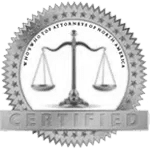
Annapolis-Based Arbitration Attorney
Serving Clients Throughout Maryland, the DMV Area, North Carolina, and Federal Employees Throughout the U.S.
Where one has agreed to arbitrate a dispute, and assuming that the agreement to arbitrate is enforceable,* your matter will be adjudicated in arbitration.
Arbitration is set out by contract and the rules as to how the arbitration will be conducted are usually addressed in the agreement to arbitrate and, if the arbitration is conducted in one of the three structured arbitration associations/organizations – The American Arbitration Association, JAMS, or FINRA – the rules set out by those particular associations/organizations, will direct the processes used for arbitration.
The American Arbitration Association (AAA) is a common forum for arbitrations. AAA has set out rules for its arbitrations and both commercial and employment matters are handled at the AAA. The key AAA rules include:
The new Commercial Arbitration Rules and Mediation Procedures, including procedures for Large, Complex Commercial Disputes; and the AAA Employment Arbitration Rules and Mediation Procedures.
JAMS is another common forum for arbitrations. It also has its own rules that are applied for both commercial and employment arbitrations:
- The key JAMS arbitration rules include:
- The JAMS Comprehensive Arbitration Rules & Procedures;
- The JAMS Streamlined Arbitration Rules & Procedures; and
- The JAMS Recommended Arbitration Discovery Protocols for Domestic, Commercial Cases.
The difference between AAA and JAMS arbitrations, generally, is that AAA provides a broader scope for discovery than JAMS.
Discovery is an important tool to allow a party an opportunity to gather information necessary to prove and/or defend a claim. Where a process allows for greater discovery, it optimizes the potential for a fair process.
AD HOC Arbitrations are those that occur outside any particular association. Many high level disputes are handled in this matter.
FINRA Arbitrations
The Financial Industry Regulatory Authority (FINRA) is the self-regulatory organization for interstate broker-dealers, their registered employees, and associated persons in the securities industry. To become a registered employee of a FINRA-member firm, you must complete and submit Form U-4. FINRA Rule 2263 requires that your employing broker-dealer disclose that your initial Form U-4 and every amendment to your Form U-4 includes a pre-dispute arbitration clause that will bind you to FINRA arbitration of most disputes between you and your employer or you and any customer of your employer.
There are exceptions to this mandatory pre-dispute arbitration clause. You cannot be forced to arbitrate an employment discrimination suit involving a statutory violation, a sexual harassment and assault claims, or claims arising under whistleblower statute(s). You may, however, opt to arbitrate the claim if the agreement to do so occurs after the acts giving rise to the claim(s) occurred.
Right to File Complaints with Government Agencies
Regardless of which arbitral forum you are bound to, it cannot stop or impede your right to file complaints of discrimination or other wrongdoing with the pertinent federal, state, or local government enforcement agency. Further, no arbitration can limit you from filing whistleblower complaints.
In addition, there may be other statutory limitations to compelling arbitration for certain claims.
How We Can Help
We can assist you by assessing your matter, identifying the legal issues, determining whether your claims are properly subject to any arbitration agreement, preserving your claims, submitting complaints to government agencies on your behalf, and representing you in arbitration.
We have helped many employees and businesses with disputes in various arbitral forums.
* Not all agreements to arbitrate are enforceable and there may be a myriad of reasons why your dispute should not be forced into arbitration. The Law Office of Ruth Ann Azeredo, LLC has argued successfully in the U.S. District Court of Maryland that a client’s claims against his employer should not be decided in arbitration. See Caire v. Conifer, 982 F. Supp. 2d 582 (D. Md. 2013).
-
 ACQ5
ACQ5 -
 TOP ATTORNEY
TOP ATTORNEY -
 TOP 100
TOP 100



